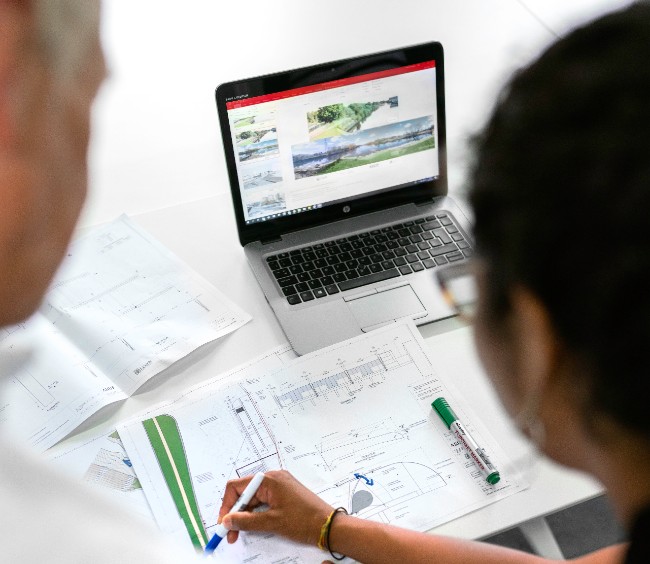The skills required for the ‘smart local energy systems’ of the future need new approaches to training and qualifications.

To support the UK Government’s net zero commitment, the energy system must become increasingly decarbonised, digitalised and localised and the skills required to develop, install and operate its components are changing.
About the research
This new approach to energy supply and use, which we term a ‘smart local energy system’ (SLES), is made up of interconnected sub-systems including:
• (renewable) energy generation, supply and storage,
• construction and retrofit of buildings where heat and electricity are stored, consumed and, increasingly, also produced,
• transport and mobility where electric vehicles consume electricity or feed it back from battery to grid,
• local/national government which regulates energy,
• people and communities who participate in energy demand management and may also be employed in a related job.
For SLES to work effectively, the component sub-systems need to be smart and inter-connected. This means that much of the SLES workforce will need data management and other ICT skills on top of their role-specific capabilities (e.g., a local authority city planner using data analytics to inform her daily work). These multi-skilled workers are in demand as they bring a broader knowledge base to their roles and operate outside the skills silo.
Our research explored the skills needed for SLES to succeed, and the training required to enable this. Initially, over 70 interviews were conducted with professionals involved in SLES case studies. Follow up discussions were then held with educators.
Policy implications
• Central government must be consistent in policy messages to employers, educators and workers about the long-term relevance of clean and renewables-based energy jobs and the need for ICT and data science skills across different sectors.
• Regulation is needed to create properly certified qualifications for SLES jobs – e.g., for delivering retrofit, alongside quality monitoring and stable policy to improve demand for new skills and training.
• Workers must be encouraged to develop these new skills and employers facilitated to release employees to undertake training and implement new technologies.
• Colleges and qualifying bodies need additional funding to develop qualifications that fully address the needs of net zero and the changing energy system, enabling them to recruit staff and deliver new training approaches.
• Accredited courses and qualifications must reflect both current and upcoming needs. Qualifying bodies must maintain continuous dialogue with employers, policy makers and researchers to forecast and address future skills gaps across different sectors.
• The awarding process for qualifications must become more flexible, allowing colleges to combine parts of different accredited qualifications into new ones as jobs require a previously unexpected mix of knowledge and skills e.g., combining software engineering and power system units for a Software Engineer for Power Systems qualification.
• Lifelong learning should be fully valued within a national framework and deliver recognised training credits.
Key findings
In our analysis, we identify 4 main types of training provision:
1. Formal training at school, college and university with well-regarded and clear qualifications as outcomes – eg GCSE, diploma, apprenticeship, degree,
2. Short courses – (sometimes) leading to recognised qualifications and adding to pre-existing skills,
3. On the job and peer learning which is informal and job-specific,
4. Wider knowledge acquisition where learners seek to grow their understanding through reading, attending conferences, public engagement etc.
As technologies rapidly change and develop, those working within the SLES sector must continuously acquire new skills, combining different training approaches over the course of a career. Original skillsets are enhanced by learning on the job or evolve as workers move across roles, companies, or sectors of SLES.
Training and qualifications must also change to keep pace. Colleges and universities need to be responsive in delivering the necessary qualifications within appropriate timescales to develop specific technological or cross-sectoral skillsets. Secondary schools also have a role, in preparing the future workforce and educating the general population.
In particular, further education colleges are ideally placed to support the evolving training needs of the SLES workforce. However, discussions with college leaders highlighted three key barriers:
i. Lack of demand for new skills, in part due to uncertainty over which technologies will continue to grow and be in demand. Additionally, students are not aware of some new technologies and employers do not have the current expertise to apply them at scale.
ii. Qualification accreditation processes mean that colleges can only offer what is currently accredited. New courses take time and resource to be developed and approved and require long term policy certainty to justify investment.
iii. A lack of flexibility in qualifications means that students cannot currently combine skills across qualifications. New ways of working in SLES draw on skills from more than one traditional qualification and a new ‘hybridisation’ approach would allow accumulation of recognised credits from across programmes to reach the desired qualification level. For example, adding data analysis to a mainly Marketing qualification for a ‘Marketing with Data Science’ hybrid qualification.
Further information
This research was conducted as a part of EnergyREV which was established in 2018 under the UK’s Industrial Strategy Challenge Fund ‘Prospering from the Energy Revolution’ programme (UKRI grant number EP/S031863/1). It brings together a team of over 60 people across 22 UK universities to help drive forward research and innovation in Smart Local Energy Systems.
Other reports on skills and training provision produced by the team can be found at: https://www.energyrev.org.uk/themes/supporting-scale-up/new-skills-and-training/
Authors
Caroline Bird and Ruzanna Chitchyan, University of Bristol
Policy Briefing 125: Feb 2023
Skills for ‘smart local energy systems’ of the future need new approaches (PDF, 6,017kB)
Contact the researchers

